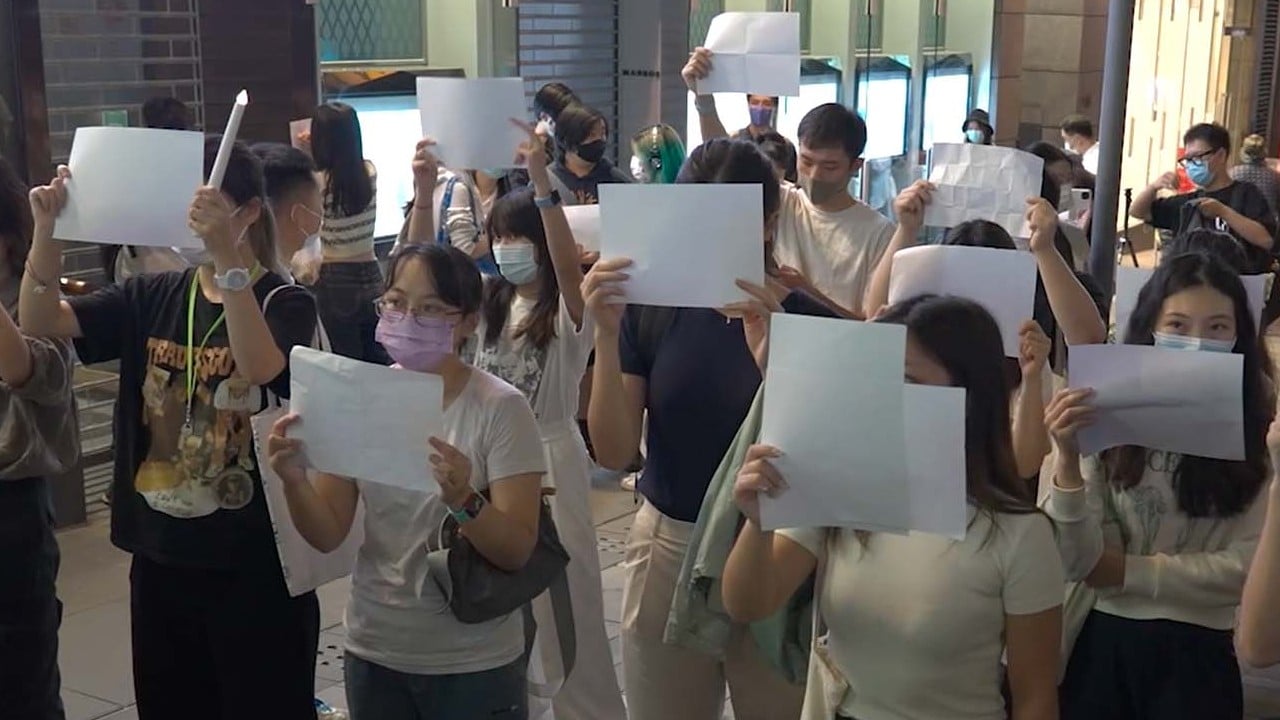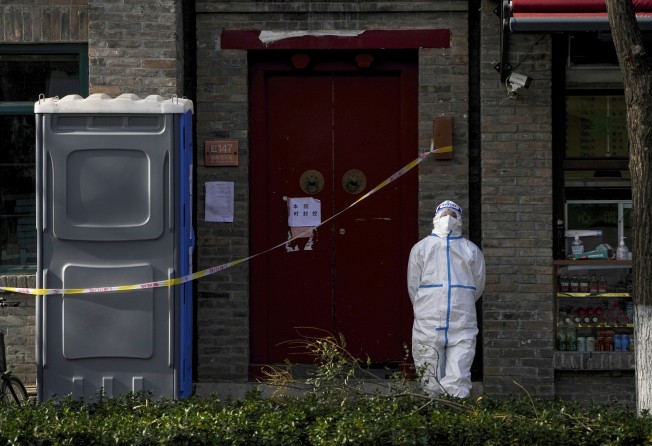
03:00
Protesters around the world rally behind Covid demonstrators in China

As mainland Chinese grow more vocal in questioning and challenging Beijing’s zero-Covid policy, a debate is brewing over the geopolitical cost of the “people’s war” against the virus.
Three years into the pandemic, and with no clear exit plan in sight, many are disillusioned and angry about the toll draconian coronavirus controls have taken on the economy and people’s livelihoods.
They are also concerned about the possible global implications of Beijing’s handling of the pandemic.
With China’s economy – which represents more than a fifth of global growth – forecast to slump deeper into contraction due to travel curbs, mass testing and lockdowns affecting more than 400 million people, hopes of a speedy worldwide recovery have been dashed.
And while other countries have gradually returned to normal life, China’s excessive response to Omicron – amid public discontent over a more inward-looking approach to global affairs – has raised questions about how well Beijing can handle its rivalry with Washington.
Early this month, a viral post on social media network Weibo asked: “Is it [the United States] that is preventing the WHO from declaring an end to the Covid-19 pandemic?”
That would be “much more effective” than the sanctions imposed on Huawei and other Chinese tech firms as it would make China “commit [economic] suicide, with consummate ease”, read the post, which was later censored.
World Health Organization chief Tedros Adhanom Ghebreyesus declared the end of the pandemic was “in sight” in September as new cases fell significantly, but a week later he said it was “still a long way off”.

A WHO announcement about the end of the pandemic would embarrass China, the only major economy still pursuing zero-Covid. Pundits and economists have also warned that the restrictions threaten to put an end to China’s rise.
When US President Joe Biden’s performance was raised on Chinese knowledge-sharing site Zhihu last month, the most popular comment was: “Biden is so lucky that he doesn’t have to bother to do much himself. The top two thorns in his side have begun to … stab themselves with knives.”
The comment – apparently referring to Russian President Vladimir Putin’s invasion of Ukraine and Chinese leader Xi Jinping’s zero-Covid policy – swiftly disappeared from the site.
So did the second most-liked response, taking aim at Russia’s “military suicide with its Ukraine war” and China’s “economic suicide over a disease that has a lower fatality rate than that of seasonal flu”.
Beijing so far appears unmoved by rare nationwide protests that broke out over Covid-19 restrictions in recent days. State media continues to claim that the policy shows the strength of the China model, and in the lead-up to the Communist Party’s national congress last month, it was also tied to national development and became a way to test the loyalty of cadres.
So is China’s obsession with zero-Covid an opportunity for superpower rival the US?
In the strict sense of power politics – or what Biden frames as a decisive battle between democracies and authoritarianism – the US president has effectively said it is.
According to his national security strategy unveiled last month, along with Washington’s alliance-based approach to contain Beijing, “China’s own behaviour has produced significant and growing opportunities to align approaches and deliver results”.
It also points to the “profound and mounting challenges” facing China and Russia, which “are associated with the pathologies inherent in highly personalised autocracies and are less easily remedied than ours”.
Commenting on the protests in China, American think-tankers have pointed to the “inherent advantages” of Western democracy.
“A month ago, few would have predicted that [Biden] would face fewer and less significant domestic challenges than his opposite numbers in China, Russia and Iran,” Richard Haass, president of the Council on Foreign Relations, tweeted on Monday. “We have a great deal of work to do here, but inherent advantages of democracy are its safety valves and ability to adapt.”